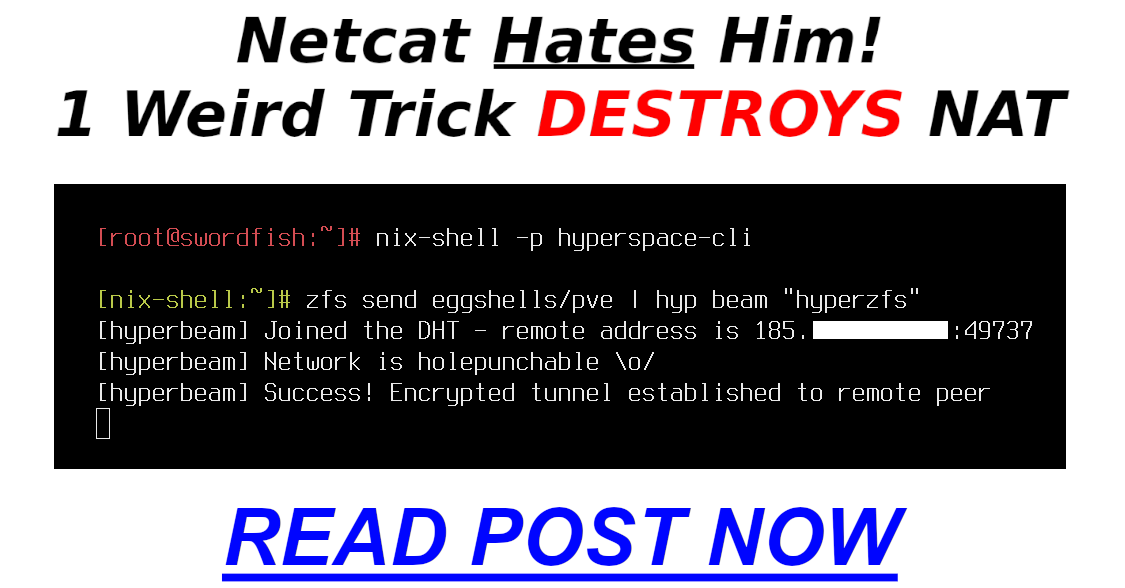Godot’s Export to Android: Easy with Nix

The pain Reading the Exporting for Android documentation for Godot is grim. It instructs developers to manually execute series of esoteric runes in order to hopefully achieve an end result and environment that is the same as everyone else. It expects you, the user, to “Ensure that the required packages are installed as well.”, at specific versions. It does not tell you how to go about getting those versions of the required programs, whilst encouraging you to use sdkmanager, a constantly mutating script which downloads random files and binaries from the internet, compiling nothing from source, and leaving two developers in very different states.
Hypercore Beam - Break Through NAT With This One Weird Trick

hyp beam can be thought of as a drop-in replacement for nc, for those situations where you just can’t be bothered to set up a VPN or manually establish a path between two machines via traditional methods like port forwarding. It provides the user with a method of breaking through NAT and transferring data via the Hypercore protocol between two machines, peer to peer, anywhere in the world. Peer discovery happens via DHT/mDNS using a concept called Hyperswarm, not too dissimilar from what Bittorrent clients have always done; although its usage of mDNS is quite unique and cool.
NixOS + the Worst UEFI ever (S5520UR)

If you read the Wikipedia Page on UEFI you will notice there are a few things missing.
The first thing that is missing is names. The second is the word ‘engineer’. Did humans make this? Is any one responsible? Who is to blame? UEFI was designed by a comittee, so no one can be held accountable.
More digging tells me that UEFI was developed by over 140 technology companies as part of a UEFI consortium.
My Frustrating Arch Install (De-Antergosifying)

lustrate
/ˈlʌstreɪt/
verb
purify by expiatory sacrifice, ceremonial washing, or some other ritual action. “a soul lustrated in the baptismal waters”
The Past (Thu 21 May 23:26:00 GMT 2020) 2 years ago, in 2018, I began using Linux for real. My distribution of choice was Antergos, an ‘easy button’ Arch installer that was really popular at the time. The first package I added post-install apparently was synergy, a package to share my mouse/keyboard with my still-existing Windows 10 machine: